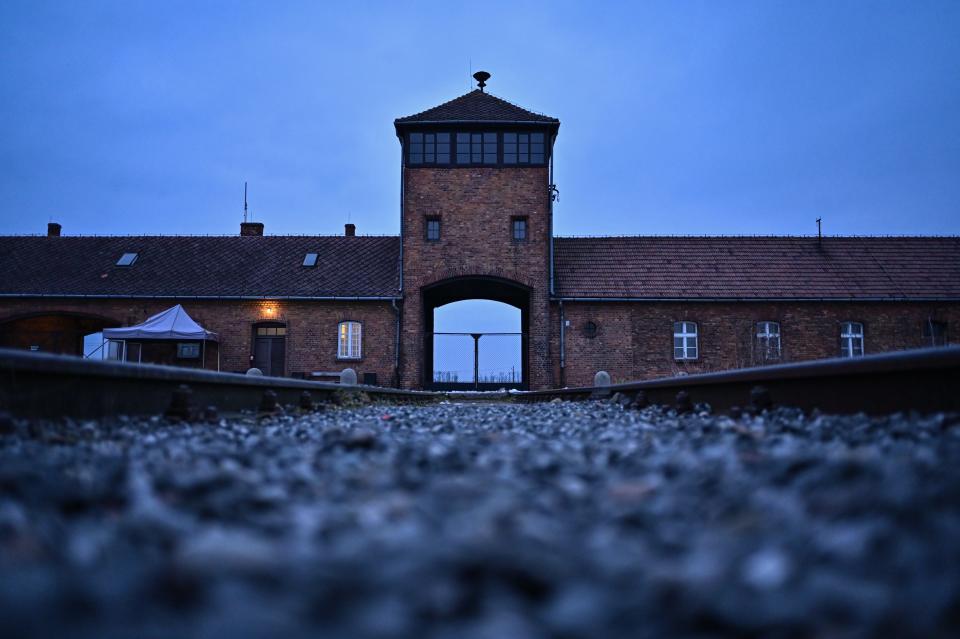Studying history allows you to see where evil lives | Opinion
- Oops!Something went wrong.Please try again later.
When we hear the word “history,” we often think of lists ― lists of dates, names, places, and distant events from long ago. Because history is not, by its very nature, new, it can be challenging to see its utility or its connection to our lives today.
However, the value of knowing and understanding what has occurred in the past is great because, just as science teaches us about the realities of the physical world, history teaches us about the realities of human nature. Constants, variables, experiments, predictable results, and valuable cumulative knowledge exist in the physical world—and the same holds true with human nature, proven through history.
One definition of history is “an established record.” Another is “a branch of knowledge that records and explains past events.” History offers priceless guidance by revealing the nature of man, both good and evil, and documenting its results. In the good, we find inspiration, heroes, and actions worthy of emulation. In the evil, we are cautioned by accounts of suffering, villains, and actions to be avoided, fought off, and defeated.
The history of human conflict is particularly instructive. In wars, we encounter the struggle between the forces of good and evil and villains opposite heroes. One such hero was Maximilian Kolbe. Born in 1894 in Poland, Kolbe was a Catholic priest and a friar who served in a monastery during World War II. The monastery operated as a hospital and also published religious items and anti-Nazi works. Because the Nazi authorities believed that religion should be subordinated to the government state, Kolbe was arrested — for the second time — in February of 1941. Three months later, he was transferred to the Auschwitz concentration camp where he was punished brutally.
In July of 1941, after a prisoner escaped from Auschwitz, the Nazi deputy camp commander chose ten Auschwitz prisoners to be starved to death in retribution. (Collective punishment is used by evil regimes to control the public through fear.) Kolbe, though not selected as one of the ten, volunteered to take the place of a prisoner who was — Franciszek Gajowniczek — who had cried out, “My wife! My children!”
More Nicole James What Federalism means for us | Opinion
James Madison was right: Factions mean freedom | Opinion
Kolbe's request was granted. Even while Kolbe and the others were deprived of water and food, he led them in prayer. After two weeks of starvation and dehydration, four prisoners, including Kolbe, continued to cling to life. Seeing them still alive, Nazi guards decided to empty the bunker. Kolbe was then killed through an injection of lethal carbolic acid, which the Nazis used to execute “undesirables.”
This act of heroism and sacrifice proves that history is much more than lists of dates and events. It reveals the existence of good and evil, helps us to discern between the two, and gives instruction for current and future inflection points. History features people like Hitler, Stalin, and Mao, who were responsible for the deaths of countless millions, and people like Maximilian Kolbe, who served his fellow man here on the earth and willingly gave his life for another. The man whom Kolbe saved went on to be liberated by the Allies in 1944, was reunited with his wife and children, and lived to the age of 93 in 1995.
Our world would be a far different and far worse place if science were not perceived to be valuable. Scientific discovery and experience documented and passed down through centuries has helped us understand our surroundings, saved countless lives, and aided decision making to the advancement of societies around the world. The knowledge of science has clearly positively affected the human condition.

History as a body of knowledge is similarly valuable. Just as critical information about the way things work is passed down from parent to child, knowing what has happened among our forebears assists us in understanding the way the world works, based upon human nature. Importantly, we do not need to repeat mistakes. For example, the Founders were intentional in the language they used in our Declaration of Independence and in, the foundation of our laws, our U.S. Constitution. They understood from history what happens when citizens do not have individual rights and liberties, and we as Americans are the beneficiaries of their insight into human nature, with these essentials guaranteed to us in written documents.
Learning and relying on history, including through primary sources, is the only way to escape a repetition of wrong actions from the past. It is also a way to gain inspiration from heroes, such as Maximilian Kolbe. History is not only valuable, but a continuum—one that all of us, through our use of it to make good decisions, can positively affect.
Nicole James teaches political science at Eastern Florida State College.
This article originally appeared on Florida Today: Studying history allows you to see where evil lives

